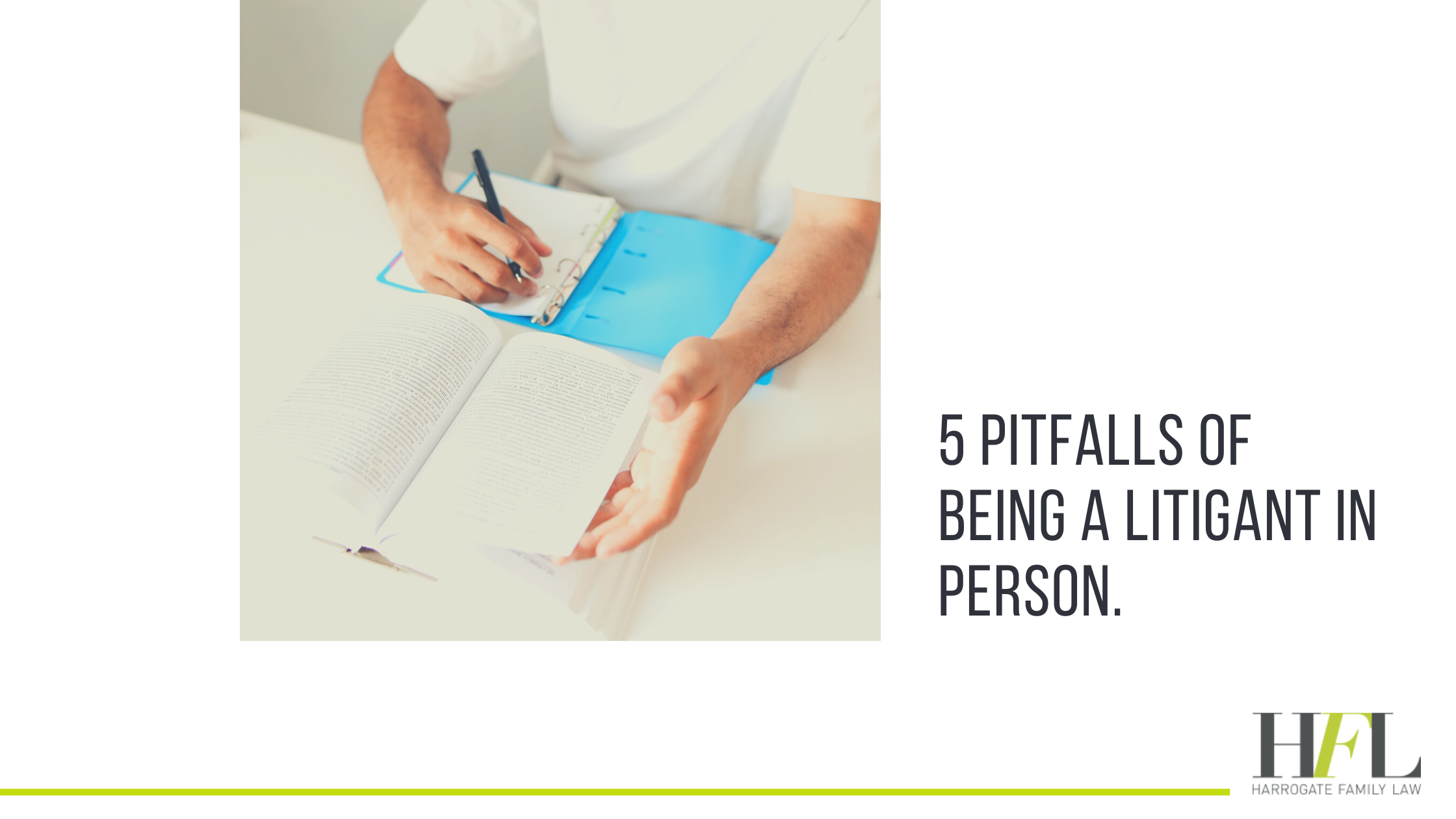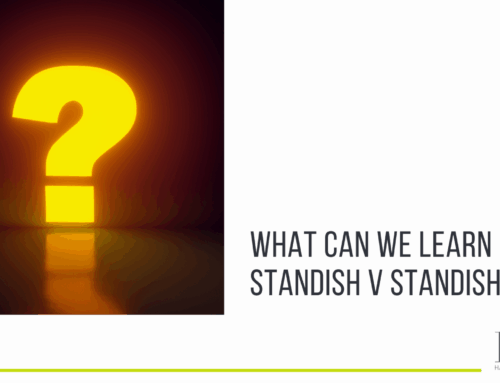On the face of it, representing yourself during a divorce might seem like an obvious path to take, particularly if you’re worried about your finances and how you’ll pay your legal costs. However, whilst it might save you money in the short-term, you may find that becoming a self-representing litigant (often called a litigant in person) will cost you far more when it comes to your future.
Representing yourself during any court proceedings isn’t easy. Understanding the legal terminology, the seemingly endless paperwork, and training yourself to think with your head rather than your heart – it can all make for a very stressful experience.
Since the significant cuts made to legal aid back in 2013, we’ve seen a rise in the number of people choosing to represent themselves, and the consequences of that often leave a lot to be desired.
Here we’re taking a look at some of the pitfalls of being a litigant in person and why expert legal advice should be seen as an investment rather than a cost.
Conduct is usually irrelevant
Without the guidance of a solicitor, it’s all too easy to get bogged down in the emotional narrative and the confrontational back and forth. Ultimately this isn’t what matters, and it certainly won’t be relevant when it comes to agreeing on an outcome.
Many people mistakenly believe that the less than exemplary conduct of their ex-spouse is all they need for things to be decided in their favour. In fact, this is simply not the case. Conduct, unless incredibly serious, won’t be considered by the court when making decisions about the finances, and this includes adultery. You can read more about this in one of our previous blogs here.
Keep your emotions in check
More often than not, court proceedings are very tense for both parties. You’re only human, and in these situations it can be very easy to let your emotions take over. Aside from providing expert legal advice, one of the most important jobs of a solicitor is to help you stay calm and think objectively.
During proceedings, your solicitor will do the talking for you, significantly reducing the chances of lost tempers, hurled insults and statements made in the heat of the moment that could be held against you.
A lonely place to be
Representing yourself during your divorce can be a lonely and isolating experience. Without an objective person standing in your corner, it’s difficult to know whether your expectations are realistic, and when and where any compromises need to be made.
When things don’t go your way (as they sometimes won’t), you may feel as though the judge or your ex-spouse’s solicitors are conspiring against you, or that you’re at a disadvantage for not having a solicitor in your corner.
Whilst the former is unlikely to be the case, there’s no doubt about the fact that not having legal advice will potentially put you at a disadvantage. That’s why it’s always sensible to seek independent legal advice to discuss all of your options, including the ways in which you can finance the representation you need.
A lack of understanding
At the end of the day, solicitors are the people best placed to deal with legal disputes. It’s what they’re trained to do. The law can, at times, be very user-unfriendly. Complex language and terminology are just one of the reasons why a solicitor is a good person to have in your corner.
During a divorce, there can be a lot of documentation to prepare. This is especially true in cases where financial negotiations are taking place. It’s absolutely vital to be as concise as possible. You need to be able to recognise where information is relevant and when. Otherwise you risk producing reams and reams of information that the court and the other party will need to sift through, which will result in matters taking far longer than they should.
Costly mistakes
Yes, representing yourself will save you money in the first instance. But the many pitfalls that are associated with being a self-representing litigant mean that you’re at risk of making mistakes that will cost you more in the long run.
A lack of understanding, inexperience and heightened emotions may well reduce the chances of you being able to negotiate an outcome that works for you both now and in the future.. If this happens, finding a way back and rectifying any mistakes is very difficult, not to mention costly.
Engaging in court cases as a litigant in person can make legal disputes immensely more stressful for you, and your family. At Harrogate Family Law, we always recommend exploring the option of having an expert solicitor in your corner, to ensure that you’re getting the best possible outcome for the future.
If you’re in need of legal advice, don’t hesitate to get in touch. We’re always on your side.






